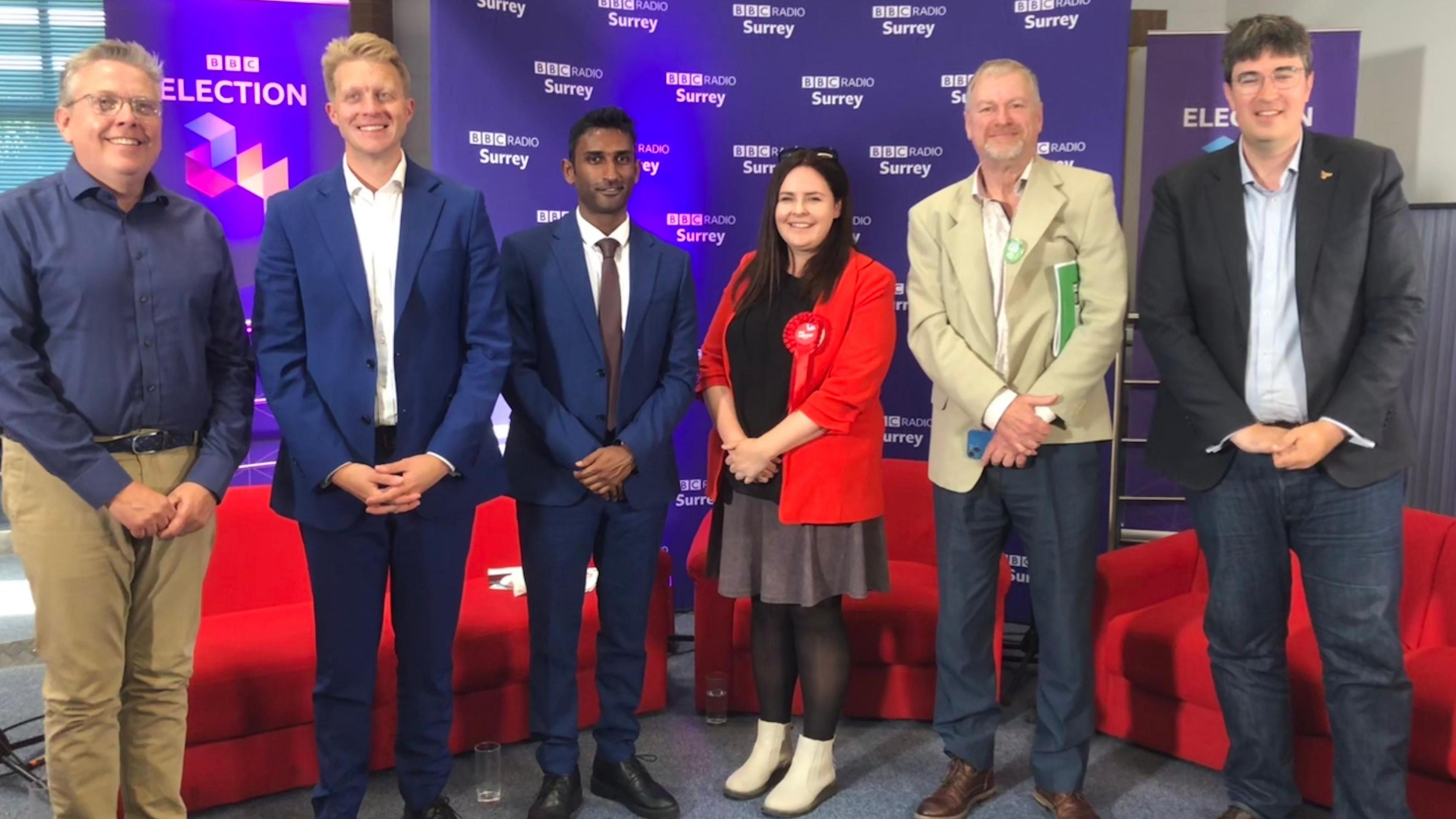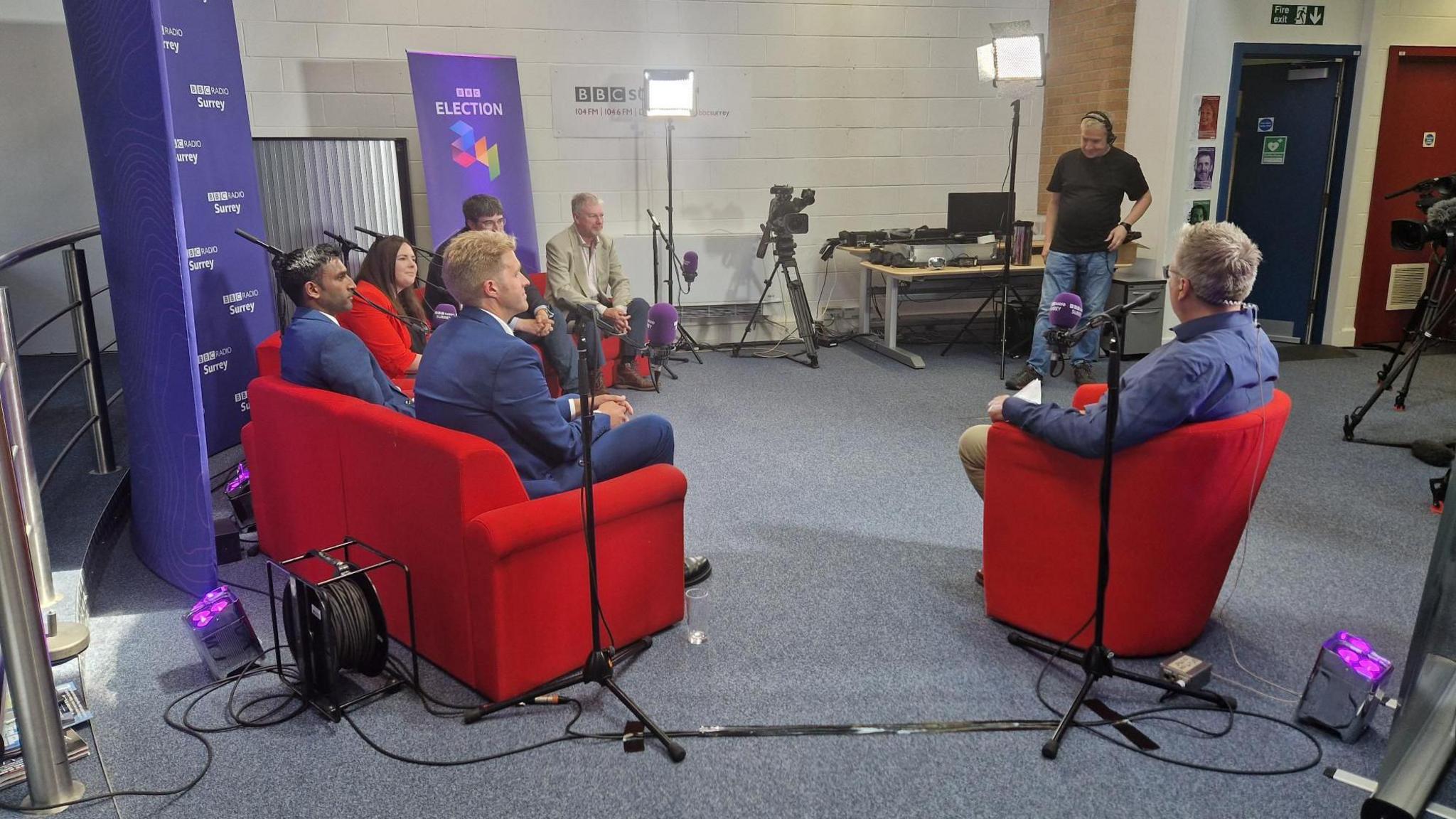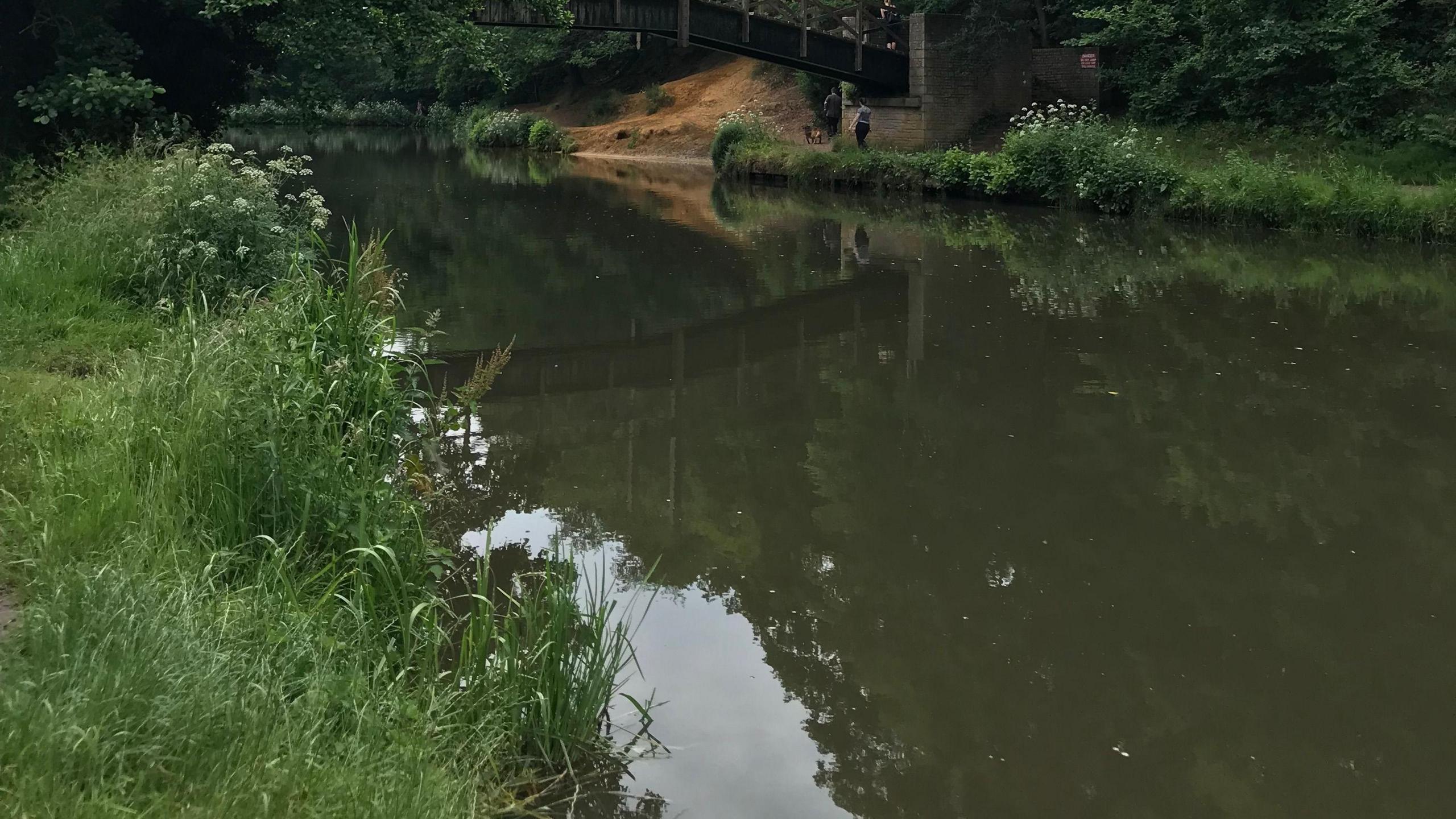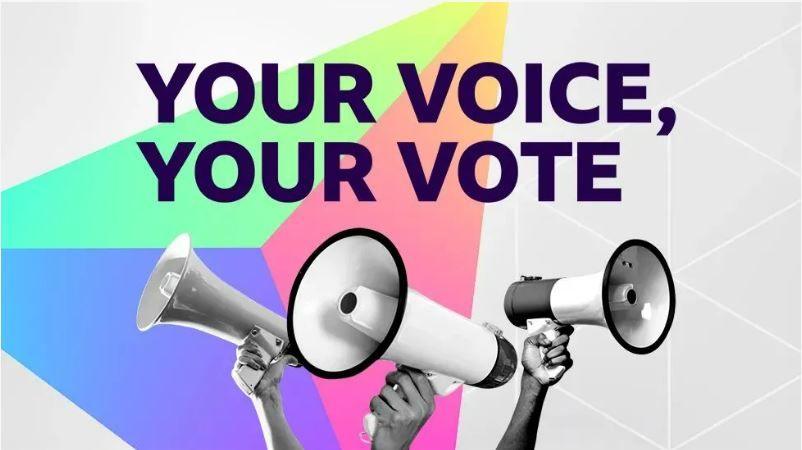Seven takeaways from BBC Surrey's election debate

BBC Radio Surrey's James Cannon hosted a debate with five general election candidates in Surrey
- Published
Social care, water and the NHS were among the issues raised when five general election candidates from across Surrey took part in the Your Voice, Your Vote general election debate.
Chaired by BBC Radio Surrey breakfast presenter James Cannon, and based around listeners’ questions, it was a passionate, but good-natured discussion.
Taking part were Conservative Dr Ben Spencer, Liberal Democrat Paul Follows, Claire Tighe from Labour, Mayuran Senthilnathan from Reform UK, and Stephen McKenna from the Green Party.
Here are some of the key takeaways from the conversation, which you can watch on iPlayer here.
1. There is (some) consensus on social care
All the candidates agreed that not enough has been done to tackle social care in the past, but have different solutions to the demands.
Conservative Dr Ben Spencer said that he supports a state-backed insurance system and more work needs to be done on prevention.
Liberal Democrat Paul Follows said it is one of the party’s key issues and there is a need to fund it properly and “get a grip” on what is becoming a “social care crisis”.
Claire Tighe from Labour said she is excited about their vision for a National Care Service, albeit in several years' time.
Mayuran Senthilnathan from Reform UK said the can has been kicked down the road by successive governments and that a royal commission is needed
Stephen McKenna from the Green Party said the party wants to do more to integrate social care with healthcare and has a range of detailed plans to make the system work better.
2. Immigration
The issue of immigration prompted one of the fiercest clashes during the debate.
Liberal Democrat Paul Follows said government changes to the rules on dependents mean there has been a big drop in applications for workers in the social care and NHS sectors.
He challenged Reform UK, saying their targets for reducing migration are “fundamentally incompatible” with their pledges to improve those services.
In response, Mayuran Senthilnathan said there are British citizens who could work in the NHS and social care, but aren't, and that the country needs to find ways of incentivising them, including raising tax thresholds and making work pay.

The candidates responded to questions from residents about issues including carers and sewage in rivers
3. Concern about water companies
Liberal Democrat Paul Follows said the country could soon be facing an emergency situation, after fears that companies like Thames Water could go bust and criticised the government’s record.
Ben Spencer said the Conservatives have been holding Thames Water to account over the discharges of sewage into rivers and are seeing improvements.
Labour’s Claire Tighe said there have to be “very, very tough penalties” when water companies are responsible for pollution in the rivers and money from CEO bonuses should go back into infrastructure.
There were also calls to - at least partly - end privatisation.
Mayuran Senthilnathan from Reform said utilities should be 50% privately owned and 50% state owned, to give the taxpayer a “stake in the game.”
Stephen McKenna from the Green Party said their policy is to take back control of the water sector because privatisation "has failed". He also said there are fears that most rivers are “at the brink” when it comes to biodiversity.
4. The NHS
All the candidates talked about the importance of getting to grips with the problems in the NHS.
Claire Tighe from Labour said it is a top priority and pointed to their pledge for an extra 40,000 operations, scans and appointments a week in England
The Green Party’s Stephen McKenna said they want to increase the NHS budget by £8bn to guarantee access to doctors, dentists and reduce waiting lists.
Conservative Ben Spencer, who is a doctor, defended the government’s record on investing in the health service and said difficult decisions had to be made during the pandemic. He believes reforms, including IT infrastructure and note taking, will be a “complete game changer".
Mayuran Senthilnathan from Reform, who is a dentist, said he wants to see charges for missed appointments and other measures including tax breaks for NHS staff and ending training caps for medical students.
Paul Follows from the Liberal Democrats said there needs to be more investment in NHS buildings and equipment and the party is promising to hire an extra 8,000 more GPs.

The River Wey is among several in Surrey where there is concern about sewage discharge
5. How will it all be funded?
Although there wasn’t a specific question from Your Voice, Your Vote, the point was made repeatedly during the debate about how money might be found to make the changes the parties are promising.
Some candidates were explicit that there would need to be tax rises, especially for wealthier members of society.
Others said that there should be more use of the private sector as a way of funding certain measures.
6. Is the country's infrastructure broken?
The debate also looked at what might be done to deal with infrastructure problems, such as potholes on roads and crumbling concrete in schools, as well as things like housing and transport.
The candidates had a range of suggested solutions, including fewer planning and building regulations, investment in renewable energy and railways, and more money for local government.
If one party does win an outright majority on 4 July, they are likely to be under pressure from different interest groups and will have to weigh up which areas to prioritise.
7. Other parties
The BBC Radio Surrey Your Voice, Your Vote debate included the five biggest parties who are likely to receive the most support at the General Election.
But there are others to chose from, with the Social Democratic Party, Heritage Party, Women’s Equality Party and the True and Fair Party among those standing in the 12 constituencies in Surrey.
There are also a number of independent candidates.
A full list of candidates standing in the general election is available here.
Follow BBC Surrey on Facebook, external, and on X, external. Send your story ideas to southeasttoday@bbc.co.uk, external or WhatsApp us on 08081 002250.

Get in touch
Your Voice, Your Vote: What do you want BBC News to cover this election?
